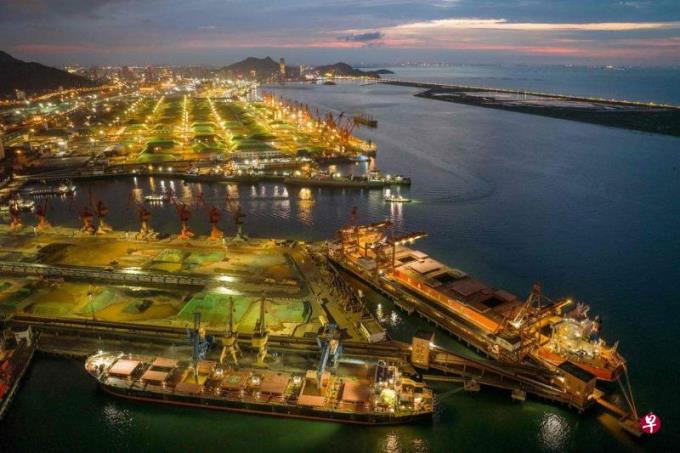
(Jackson Hall Composite Electric) Although American companies have taken measures to reduce direct imports from China, American consumers have suffered from rising prices, but China is still deeply embedded in the US supply chain.
Scholars: The US trade restrictions and epidemic conditions may cause the US supply chain to consolidate
According to Laura Alfaro at Harvard School of Business and Davin Chor at the University of Tucker School of Business, the crown disease and Russia and Ukraine War Although it has exacerbated people's concerns about the trend of globalization, the amount of global trade has not decreased.At nearly 60%of the global GDP; but at the same time, the US trade restrictions and epidemic conditions in China seem to trigger the "Great Reality" of the US supply chain.
Thereport pointed out that from 2017 to 2022, the proportion of imports from the United States from China decreased from 21.6%to 16.5%, and the share of the share from Vietnam and Mexico increased.The policy of the former Trump administration and the current Biden government aims to decompose the Sino -US economy to promote this transformation.
China ’s increase in exports and investments in the country and the United States, such as Yuemo, still rely on it
However, Chinese companies seem to be looking for a way to reduce the influence of US policies, that is, increasing exports and direct investment on Vietnam and Mexico countries.
The report said: "The indirect supply chain of the United States and China is still intact. In some aspects, these indirect connections have even been strengthened through the economic connection between China and Vietnam and MexicoStill relying on China.
The two researchers said that the policy of the United States' transfer from the Chinese market is prompted to pay higher prices in American consumers, but it does not bring the benefits that can offset this negative effect, such as promoting the efficiency of the US manufacturing industry.American companies are also worried that excessive decentralized supply chain may make them more vulnerable to the interference of events such as epidemic, severe weather, and policy changes.
The report pointed out: "Recently aims to change the procurement model, and even encourage the policy restrictions of domestic production to replace imports, which will increase the pressure and cost pressure in the United States."
This research report was published on Saturday (August 26) at the Jackson Hall Global Bank Annual Conference in Wyoming, USA.
Another research report published on the same day pointed out that the pressure of government debt and the pressure of rising interest rates will not disappear in the short term.
Report: The high public debt will not decrease significantly and it will become normal
The International Monetary Fund (IMF) Economist Servan Arslanalp and Professor Barry Eichengreen, a professor at the University of California, said: "In the foreseeable future, the high amount is high.Public debt will not drop significantly. This will become a semi -permanent state, and countries have to accept this new reality. "
The two discussed various methods to reduce debt, but they found that the feasibility was not high.For the state government that is in split, it is very difficult to reduce expenses and increase taxes, especially during the slow period of economic growth.It is expected that inflation can offset debt, unless the inflation rate is amazing and large enough.At the same time, the possibility of higher interest rates is far greater than that of interest rates.
The report believes that for developed countries with high credit rating, these risks should be "controllable" because their debt is a "security asset" popular with public institutions and private investors.Emerging markets, especially developing countries, will face more difficulties, and many countries may need to reorganize debt.
TheReport also warns that developed countries such as the United States cannot regard the highest credit rating as taken for granted, and must "carefully avoid adopting a measure of security assets that may cause them to be re -evaluated as unsafe measures."




